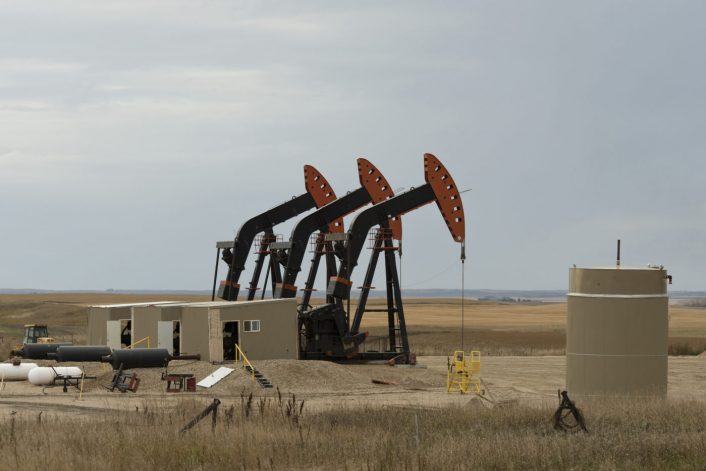Coronavirus and price war batter Montana’s oil industry
3 min read
The coronavirus has hit Montana’s petroleum industry hard, with the slowing of the Chinese economy depressing global demand even as a price war between Saudi Arabia and Russia floods the market with oil that’s cheaper than Montana can produce.
With the U.S. economy’s slide into recession set to further reduce demand for oil, Montana Petroleum Association Executive Director Alan Olson says Montana’s oil industry is facing some of the lowest prices it’s seen in a long time.
“It’s kind of almost a perfect storm between what’s happening in the economy because of the coronavirus and how production numbers have climbed,” he said.
On March 8, Saudi Arabia launched a price war against the Russian oil industry after Russia refused to participate in a deal with the Saudi-dominated Organization of the Petroleum Exporting Countries. The OPEC deal would have raised global oil prices driven down by China’s coronavirus-crippled economy via oil production cuts by participant countries.
Russia refused to cut production, having lost market share to the growing U.S. shale oil industry during previous production cuts negotiated with the Saudis. In response, Saudi Arabia boosted production, hoping to drown the Russian oil industry with rock-bottom prices, and tanking the debt-ridden U.S. shale oil industry in the process.
In the past month, the global benchmark Brent crude price fell from nearly $60 a barrel to just above $30, and West Texas intermediate, a significant American benchmark oil, fell from $54 to $25 dollars a barrel.
According to oil-consultancy firm Rystad Energy, only shale operations in the Permian Basin of Texas and New Mexico and the DJ Basin of Colorado are efficient enough to turn a profit at $31 a barrel. Montana’s oil industry, particularly the Bakken Formation of eastern Montana’s Williston Basin, is not competitive. Williston Sweet and Williston Sour are selling at around $16 and $8 a barrel respectively as of Thursday, March 19.
“It’s kind of almost a perfect storm between what’s happening in the economy because of the coronavirus and how production numbers have climbed.”
—Montana Petroleum Association Executive Director Alan Olson
Dan Fradenburgh leads an oil roustabout crew in Baker that does the manual labor necessary to keep oil flowing in the Williston Basin. While normally he’d be changing check valves on pumping units or replacing flow lines, he said, the oil price drop means a lot of crews have slowed down and are doing only minimal maintenance.
“If a well produces less than 50 barrels of oil a day, they are shutting in the well. So now they only repair if it’s a big producer of oil, or an emergency like a broken valve that’s leaking oil,” he said.
Without as much work in the oilfields, Fradenburgh said, his bosses at Choice Construction are doing everything in their power to make sure workers get 40 hours a week by paying them to clean trucks and equipment and do other odd jobs.
In February, before the price war, North Dakota regulators warned that the more expensive of the Bakken wells would be shut down as the coronavirus constrained the Chinese economy. The director of the North Dakota Pipeline Authority compared the contraction to the damage the SARS virus caused to the Chinese economy (and demand for oil) 17 years ago.
Olson said the effect of the Chinese economic downturn on oil prices feels similar to 2014, when China’s economic growth hit a 24-year low.
The U.S. economy is also in apparent trouble, with the stock market gains of the Trump era wiped out over the last few weeks, and Treasury Secretary Steve Mnuchin warning Tuesday that the unemployment rate could skyrocket to 20 percent without federal bailouts of the private sector. The Trump administration is reportedly considering a bailout to shale oil companies.
Also hit hard by low demand and the price war is Alberta, Canada, as oil sands have the highest break-even price of any oil type due to high production costs, according to Rystad. One method of cutting overhead costs is building oil pipelines, such as the proposed Keystone XL pipeline, to avoid the crude-by-rail bottlenecks that keep transportation expenses high.
The article was published at Coronavirus and price war batter Montana’s oil industry.





